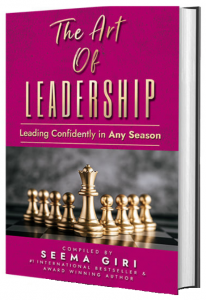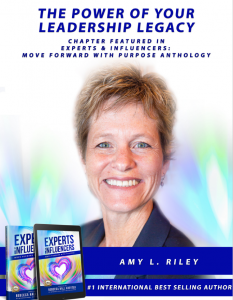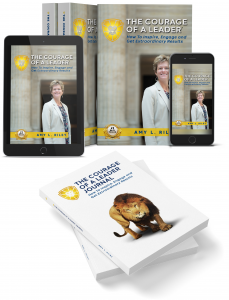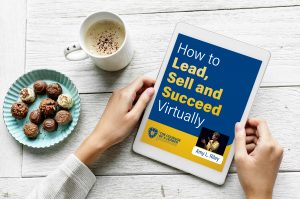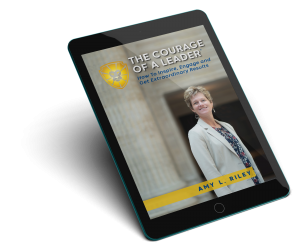Erin Lavelle, CFO at WittKieffer, and I discuss powerful authentic leadership and how to show up day-to-day authentically, and what a difference it makes when you do. It was a vulnerable and real conversation. Glad you’re here to benefit from it!
About the Guest:
As WittKieffer’s Chief Financial Officer, Erin Lavelle plays a critical role in the development and execution of the company’s global strategy and oversees all fiscal and fiduciary needs of the organization. In her role, she is responsible for deriving strategic value out of data, driving financial planning for the business, providing informed and objective counsel on business issues, and offering technical and experience-based advice to peer executives, practice leadership, and staff.
She brings over 25 years of experience in financial and professional services as a talented finance strategist who possesses strength in leadership, creative thinking, strong collaboration and sound judgment. In her work she demonstrates vast experience, comprehensive financial knowledge, a data-driven operational mindset and strategic acumen.
About WittKieffer:
WittKieffer is a global leadership search and advisory firm serving clients in healthcare, education and the life sciences.
About the Host:
Amy L. Riley is an internationally renowned speaker, author and consultant. She has over 2 decades of experience developing leaders at all levels. Her clients include Cisco Systems, Deloitte, and Barclays.
As a trusted leadership coach and consultant, Amy has worked with hundreds of leaders one-on-one, and thousands more as part of a group, to fully step into their leadership, create amazing teams, and achieve extraordinary results.
Amy’s most popular keynote speeches are:
The Courage of a Leader: The Power of a Leadership Legacy
The Courage of a Leader: Create a Competitive Advantage with Sustainable, Results-Producing Cross-System Collaboration
The Courage of a Leader: Accelerate Trust with Your Team, Customers and Community
The Courage of a Leader: How to Build a Happy and Successful Hybrid Team
Her new book is a #1 international best-seller and is entitled, The Courage of a Leader: How to Inspire, Engage and Get Extraordinary Results.
https://www.linkedin.com/in/amyshoopriley/
Thanks for listening!
Thanks so much for listening to The Courage of a Leader podcast! If you got inspired and/or got valuable leadership techniques you can use from this episode and think that others could benefit from listening, please share using the social media buttons on this page.
Do you have questions or feedback about this episode? Leave a comment in the section below!
Subscribe to the podcast
If you would like to get automatic updates of new The Courage of a Leader podcast episodes, you can subscribe to the podcast on Apple Podcasts. You can also subscribe in your favorite podcast app.
Leave us an Apple Podcasts review
Ratings and reviews from our listeners are extremely valuable to us and greatly appreciated. They help our podcast rank higher on Apple Podcasts, which helps us ignite The Courage of a Leader in more leaders! Please take a minute and leave an honest review on Apple Podcasts.
Teaser for next episode
My next guest is long-time business owner of a performance improvement and management consulting company and a business partner of mine, Jerry Houston. We talk about the “Ultimate Prioritizing to Garner Guaranteed Momentum.” This one has guidance that’s thought-provoking and immediately applicable.
Transcript
Erin Lavell, Chief Financial Officer with WittKieffer is my guest today, and she and I talk about how to be that powerfully authentic leader, how to show up authentically day to day, and what an impact it makes. When we do. I'm so glad you're here to listen in.
Amy Riley:Welcome to the Courage of a Leader podcast. This is where you hear real life stories of top leaders achieving extraordinary results. And you get practical advice and techniques, you can immediately apply for your own success. This is where you will get inspired. And take bold, courageous action. I am so glad you can join us. I'm your host, Amy Riley. Now, are you ready to step into the full power of your leadership and achieve the results you care about most? Let's ignite the Courage of a Leader.
Amy Riley:Erin, why is it important to be an authentic leader? What benefits? What results? Does authenticity in the workplace create for us?
Erin Lavelle:I think that's a terrific question, Amy. And it's something that I think we hear a lot about these days. And I think it can be different, you know, for everyone. For me at its core, the outcomes of having authenticity and being seen as an authentic colleague really deepens relationships. You know, we all strive to be our best every day. But sometimes life intervenes. And you know, we have stressors that come from our work environment, stressors from our non work environment. No one knows the water someone else is really carrying. And having an authentic relationship provides space, where you don't always have to be on you don't always have to be you know, people naturally care you know about about you, and will give you the benefit of the doubt if one day you seem a little, you know, quite not yourself or something along those lines. So the outcome of having and being viewed as authentic is really about connecting with people, and and in creating a way that you can lead. And people will want to work with you because they understand that you see them, and you're meeting them where they are.
Amy Riley:Yes. Erin, I just heard something. And what you said I don't think I've ever quite heard it this way, is when we're showing up and showing people, our true selves, who we really are. They can then tell when we're having an off day. Yeah, because I've shown you who I really am. So now you can see on this day, she's not who she usually is, she's having an off day, right, she woke up on the wrong side of the bed, or something's going on for her personally or professionally or whatever it might be. It's an off day, She's not herself today. Like that.
Erin Lavelle:And you know, I think also what that lets us do is, it also though, drives a factor of accountability. If if, for example, I not having a great day, I also have a responsibility to my team and my colleagues, to to get myself back to the person I need to be to be impactful in my organization. So I just have a bad day every day. And they Oh, I've got great relationships, so everybody will understand, you know, it's not quitting. I think there's an accountability factor there on both sides of that of a relationship.
Amy Riley:Yes. And when we're having a bad day, how do we in an authentic way, tap into an effective version of ourselves, right, tap into our commitments or desires for the relationships or for for the work, do that work internally, so that we're we're showing up still in an effective way. It might not be our most high energy version of ourselves or whatever it might be. Yeah, that personal responsibility. Yeah, we don't get to just say, I'm having a bad day. Good to snap everyone's head off today.
Erin Lavelle:Yeah, and I think, you know, bad day has different levels of intensity. You know, one person's bad day could be another person's great day, you know, I mean, that's, that's cool. But, you know, I think it's just about I think what we're really kind of Getting here, peeling this onion is about knowing yourself. And you know, there are days when I feel that and I hope that everyone listening has had these, where you've gotten more done in 15 minutes than you've gotten done in an entire day. It's like the clock is your friend in your workday, or, you know, whatever you're focused on in that moment. And then there are days when you sit down and you take a sip of coffee, and four hours have gone by, you know, and so I think kind of understanding yourself, understanding the day that you're in understanding what success can look like in that day, helps you stay kind of in your authentic, mindful place. Because if you have three things you need to do, that creates stress. And if you're having a day where the clock is not your friend, that's double stress. So you really have just, I mean, it sounds counter intuitive or counterproductive. But in those moments, I actually have to put the pencil down. And I literally have to sit back and say, Okay, if I have this window of time to devote, what do I need to do? And who are my colleagues I need to work with? And how can I make sure that those elements are what gets done today, or I make a dent in that project. And I have to respect also where I am, where my colleagues are, and you've kind of got to constantly navigate and read the room for you know, another cliche about like, really accomplish, you know, in that in that timeframe, because I think a lot of times, we all take on more than we have the capacity for it's kind of the way the world has been this way forever. I don't know if it's ever not been this way. But we're all feeling burned out at different points and, and being able to say, how do I get back to? How do I mindfully get back to where I need to be to be my authentic self to develop and nurture my relationships? And how do I create that balance? And I think the balance comes from what, what helps you be your best you. Thank you, thank
Amy Riley:you for this. Aaron, you are being real and authentic with us right now. And I'm I'm just thinking, awareness, right awareness of ourselves, our strengths, our style, awareness of what's on our plate, and what that is going to take from us. Right? Is there the time pressure? Is there other kinds of pressure, and really taking the time to be aware of all of that, and choose and be intentional? Given what so
Erin Lavelle:yeah, I love the word that you use, they're intentional, I think that that definitely hits the nail on the head with, you know, kind of what you're doing. But being intentional is takes energy, you know, kind of go with the flow or, you know, but but to be intentional about your choices, to be intentional about your approach that pays a lot of dividends. But it's not, it's not easy. You know, it's definitely not easy. And I think in some cases, not all the time are people in environments where they feel comfortable. And so being intentional in an environment where you're uncomfortable is even, is even harder, but also very important. You know, I've been in roles and in industries, where there weren't a lot of people that looked like me. And so you're serving behaviors approaches, and I'll be completely honest, I don't golf. So if you're not a golfer in certain industries, don't look like you anyway, it's a little hard to kind of get in the circle and you know, feel like you're making those authentic relationships. And, and especially if you're on the earlier side of your career that can be very intimidating and daunting. And I think steps. That's where mentorship comes in. And you can develop relationships with folks, whether lateral or up the ladder. And those folks can help you navigate and help you uncover your blind spots, right? Because we all want to be authentic. But we only know ourselves in one context, how we see ourselves versus how others see us. And so having a good little personal board of directors can be very helpful in helping you to navigate and chances are someone has been where you are now and can help you find alternative approaches to get your seat at the table.
Amy Riley:Excellent. Aaron, you are very quickly telling us some effective techniques for really making sure that we are showing up authentically and powerfully in our workplace. And let me tell everybody a little bit more about you, Aaron, and then we'll get more into it. So my guests Day is Erin Lavelle. As with key first chief financial officer Aaron plays a critical role in the development and execution of the company's global strategy and oversees all fiscal and fiduciary needs of the organization. In her role, she's responsible for deriving strategic value out of data, driving financial planning for the business, providing informed and objective counsel on business issues. She brings over 25 years of experience in financial and professional services. As a talented finance strategist who possesses strength in leadership. That's why she's here today. Creative thinking, strong collaboration and sound judgment. So glad that you are here today, Aaron, and you started talking about the ability to leverage mentors to put together a personal board of directors so that we're getting insights from third parties, third, trusted parties about how we're showing up with our leadership, are these techniques that you've used. Tell us about your journey to authentic leadership?
Erin Lavelle:Yeah, well, and thank you, Amy, for this opportunity to talk with you today. I love your work. Of course, you know, my story? It's a great question. Because when you're going through your story, you don't really think about how you would tell it. Sometimes things happen in your life, and they make you sort of step back and take an assessment. And that's probably not, that's probably something many people have have had happened. And for me, it was about five years ago, and I'd had a successful career to that point. And I, I encountered what many people have encountered where my position was eliminated. And that was a really difficult time for me. And it became and it became, it transitioned from being a difficult time, to setting me up for success going forward. And you know, you have friends that have been there before. And folks are trying to help you stay positive, and the Yo, look back, and it'll be great. And, you know, and you hear that, and you know that you know that right? Yeah, but it's really hard in the moment. You know, I was very, very lucky as I navigated that that transition window, because I, I was found my way to people that sort of presented authenticity, and the way to make connections in a way that was different than I had experienced at that point. And I think it was reflecting on that, and doing some work in that space for myself, about finding balance, defining how I wanted to be seen as a leader, seeking my next opportunity, landing, if you will, was always in my mind what happened. And I started really focusing and transitioning from separating myself as defined by a role with myself as defined as a leader. And that that was what I wanted to really focus on, and landing and navigating to a working environment that let me lead in a way that I was comfortable with, and that was authentically me, versus leading in a way because I was observing behaviors and thinking that's the way you lead terms. So it's a little bit about getting the competence to own it. Yes, I would say, you know, some some, it's not that I lacked confidence. But I think in some ways, we all kind of second guessed, if we had done something in the best way. And you kind of you that's fine. You know, that's how you learn and grow. But you can't really dwell on it, you just have to kind of move forward. And so I think that, that I would not be the leader I am today without have had having that experience and having to take that pause at a moment in my career where, you know, I was really on the uptick, which I am now as well I love my company. It's terrific. But you know, that was an inflection point and a pivot moment for me where I chose to define my to seek to define myself differently going forward. Nice,
Amy Riley:nice, nice you leaned in and did the work. I'm hearing two important shifts there Aaron, defining my role to defining who you are as a leader. Right and then shifting from doing what the leaders around you do to how do I find the fit, right the fit and culture and the fit where they need and want The kind of leadership that you can bring.
Erin Lavelle:Yeah, absolutely. And that's, that's where I always look for an opportunity to help those that are seeking their next opportunities. And I really always stress the, the interview process is an absolute two way street. When I'm interviewing folks, for my team, especially in this particular moment, in our world, there's a lot of pace going on with, with hiring. And you're told Hurry, hurry, hurry, you know, you're going to lose this person. And my interviews with folks are, okay, we've had this conversation, you know, I'd like you to take some time and reflect on whether or not you think this is something you want to move forward with. You have to be willing to lose someone if you're not on the same wavelength is awesome. And you know, people need time to marinate and to let things sink in. And to evaluate what's best for them. You know, you really want people making an informed decision to join your organization or to be on your softball team or whatever. Yes, it goes back to intention, intention, accountability, kind of owning yourself and, and owning what makes you happy.
Amy Riley:Yeah. Yes. So you've talked about hiring for fit. You've talked about making use of mentors, maybe even a personal board of directors? What else would you offer for leaders to support them in being their authentic selves? Because I'm hearing leaders at all levels at any juncture in our career, this is work that is never done. Right, right. Because we shift circumstances in our life shifts, how do we keep on showing up authentically? What other techniques advice would you offer?
Erin Lavelle:So this next one is one that I think is tough. But again, there's many ways to get this next suggestion. But leadership management, you You never stop learning, which is sort of what you just said. And so you kind of need a coach, about professional athletes. When you think about people, there's really two things if you read about the people that run these fortune 100 companies, and they're amazing, and you're like, how do they have all this time, you know, I can barely get three cups of coffee. And but, you know, they say kind of two things. Many of them have executive coaches, or they have coaches, you know, which is a little different, it's a little more structured than having personal board of directors are mentors, additional complementary component, that can help you sort of define your leadership style, in a different way than than a mentor can. And the other thing is being able to have quiet time. Some people call that meditation, some people call that marinating reflecting, but you've just kind of need to get off your device, you just kind of need to not take in all that input block in your yard, you know, any of those things. And when you read about those that lead major companies, they tend to have that quiet time. Yeah. Or they have a way their day is structured, so that there is a wedge of quiet time. And for some people quiet time is watching their kids athletic event or going to a recital or you know, going to Starbucks for a coffee. I mean, it doesn't mean you don't have any stimuli, it just it just means you got to get off the wheel every now and again. Yes, yes, I at one point in my career. And this is a little embarrassing to say I would literally, like solve problems as I slept, which is really a sign that you're probably unbalanced. I would wake up and be like, I know how to, you know, like, model this transaction now. And I'd be like, that's a problem. I highly encourage you to solve problems, whatever way works for you, but preferably not while you're sleeping. Yeah.
Amy Riley:I love this advice. And that you teed it up by saying there's different ways that everyone might accomplish this right? Coach, you obviously you can go out, you can you can hire a coach, right, you can tap into your peers. I mean, in the leadership development programs that I lead, time and time again, when we set them up in small learning groups, when we set them up with learning accountability partners, they see like how much value they can get out of coaching one another. And we don't innately think of that, oh, I'm going to reach out to my peer in another function or another area of the organization and like ask for their time to help me in this way. Why not? not make it a reciprocal relationship.
Erin Lavelle:You can create space for your team, if you're currently managing or leading a team, and you can invite them feedback, you know, maybe not all the time and every day, but you know, you can certainly complete an initiative or project and look, do you know, a little dive on it? And ask the people in the team you are leading? What did I do? Well, and what would you like to have seen me do better to support you? I mean, there's you it's, it's a direct 360. And not everyone's comfortable, not, not all subordinates will be comfortable with that. And that's okay. But that's where you know, you have your authentic, connected relationship, you'll know which ones really want the team to grow and develop authentically, in which for which, folks, that's just too uncomfortable. So don't make them
Amy Riley:uncomfortable. Yeah, yeah. Well meet them where they are. Ya, right, right. Right. Right, start to work at a comfortable level, right? And then because because you can build the comfort over time, there can be that possibility. I love it. I love also the quiet time. Gosh, leaders these days are just going going going thinking processing doing all the time, and the importance of that pause, that quiet time, and just making sure that that is built into our days, our schedules. Exactly. Aaron, what can you tell us? What are the what are the signs for you? Because this might be signs that others can relate to? How do you know, when you're in the groove in the flow showing up authentically? And when you're not?
Erin Lavelle:Oh, yeah, no, that's a that's a terrific question. You know, it's, it's wish it was a light switch, or a ball that would go off and say, Today's maybe going to be a terrific day, I think, really, for me, it has to do a little bit with where I am in the balance of my, the things on my plate. And and that includes non work. So I think also, it's about what is my what is what is my day my week might want look like, and what are the things in my, that I'll be working on or doing that restore me and are very restorative to my personality and my person versus things are depleted, and they're just there, I'm not looking forward to that, you know, and they're not necessarily good or bad. I mean, something can be really fun, but just not something I tend to enjoy doing. And so I really have to get myself ready for that. And for me, also, it can also be very easy things like, I didn't get enough sleep, and I'm a little tired today. So I'm a little slow, you know, or I'm a little like I can't I'm listening to something I'm in a meeting. And it's a very complicated topic, and my brain is like, off, you know, somewhere else. And I'm really trying to make sure I can maintain focus, and respect the space I'm in and the role I need to, to play in that in that particular situation. And that can take so much energy on a given day that then the rest of the day, or other parts of the day, I'm just a little off. And one thing that I've become braver with is asking and moving meetings where I know I need to be at my best, but I've been depleted, you know. So it's hard. I mean, you can't you can't do that. If it's not your meeting, you can't. It's hard to do that if it's external individuals to your organization. But I think most people want to be with you when you're in a good place. And you know, unless it's something where, thankfully, I don't have a lot of this. If you if I'm really honest, I don't. It's okay, if it happens tomorrow morning. Doesn't happen. It doesn't happen to have to happen this afternoon. You know, and I think I think kind of being honest and realizing whatever speed bumps you're facing, your organization didn't get there overnight, and you're not going to get out of it overnight. You just have to be patient and pace yourself. This is a marathon not a threat. Yes.
Amy Riley:I am so impressed with that honesty. I mean, first of all, not only with yourself, right? I think so many our egos are there working against that kind of honesty, even just in our own selves. And then to be courageous enough to say, Hey, you're gonna you're gonna get a better version of me if we move this to tomorrow, right? Or just been a lot of thinking strategic, heavy, whatever kind of work recently. Let's shift the timing of this.
Erin Lavelle:And I think you'll find if you can be comfortable. I mean, sharing it in your way. You'll Probably be pleasantly surprised by your colleagues who are willing to pick up that water. And then when I get it, why don't we take this? Do this, this and this, and we'll come back to you in three days. I mean, you people surprise. And they surprise you in a good way all the time?
Amy Riley:Oh, well, I mean, it really opens up for that opportunity of creating those, those characteristics that we hear of the very high performing teams, right, where someone else picks it up for you, you've got each other's back. I mean, you're, you're really supporting one another, and coming together, day after day, right? And that, and that takes people having whatever kinds of days they're having, and being honest with themselves and others about that. Amazing. I know Aaron, when we were talking about having this episode, on this topic, that we felt it was important to acknowledge that there are corporate cultures or subcultures there systems that don't allow people to easily show up and be their authentic selves, whether that be females, people of color, people from the LGBTQ community. So we wanted to acknowledge that. And so then invite all of us as leaders to not only be those leaders who are intentionally reflecting on our own journey to showing up as authentically as we can, day after day, yet also, how do we encourage that around us, right? And notice, if there's someone whose voice isn't being heard, because they're being judged as being too assertive, or too passive or too academic, or too, whatever, right, really looking at the processes, the practices around our meetings, how the workflow to make sure that folks are included, and that we're getting different perspectives, voices into the work?
Erin Lavelle:Oh, yeah, absolutely. You know, I was pretty impressed. There was an individual in my current organization, who's in a role of diverse individuals who picked up the phone and called and said, You know, I, I'm starting my life and my career and have some questions about what a CFO does, and I'm very intrigued by it. So we met and I know this person will be moving on at a certain point, but there's a gap between when they leave our firm, and when they start their next opportunity. And, you know, I'm very interested in seeing what I can do to hijack that person and bring them into my area, in a few months trying it on. And I would, I would, I would do that with anyone that picked up the phone and reached out. And so I think that's what I'm trying to sell here is no matter where you are in your career, if you are interested in something, there's many people that you can pick up the phone and call or you have friends or colleagues in your network that know someone at a company that has that. And, you know, I think people are very willing to share their journey and help others a lot. And I think that that's also just really important, because some people start their career in one one lane and realize it's not a fit. And it's in our collective best interest to get them in the place where they can do their best work, you know, where they can showcase their genius. And that's also going to help you bring out your authentic self when you can, you know, do what do what you love, do it well, feel comfortable with it, you know, have a great team, it's a perfect place to be, unfortunately, where you are today and where you need to be tomorrow are very likely different. So I think, you know, the day though, I was starting with one organization and progressing from the entry level up to the sea level, just
Amy Riley:right up that ladder, right in that career path set out for you.
Erin Lavelle:Yeah, careers today, I think are much more of a lattice than a ladder. And they can be even maybe more fulfilling because of the diversity of work.
Amy Riley:Yes, yes. Yes. And it requires probably more intentionality. Yes. More. Yeah. Yes. No, yourself. Yes. It's, it's, it's that constant work around knowing who you are, who you authentically are as a leader, and that constant work about looking for fit, fit for your strengths, your passion, your style, and what you want to bring through your leadership.
Erin Lavelle:Exactly. And I think you need to be alive Take a ball. But that doesn't mean that you have to be likable. And you also have to ensure that you're leading people. Well, I mean, you know, you have to have difficult conversations, but you can do them in a, in a productive way.
Amy Riley:Aaron, thank you for your time today. So many great messages about awareness, intentionality, that quiet time. Find your coach, find the mentors in your world. Call yourself to this exciting journey of being an authentic leader and get support from others along the way. Exactly. Yeah, thank you for everything that you had to share. Aaron, really appreciate you being on the courage of a leader podcast.
Erin Lavelle:Thanks, Amy. I really appreciate the conversation and hopefully this resonates with your tribe.
Amy Riley:Excellent. Thank you.

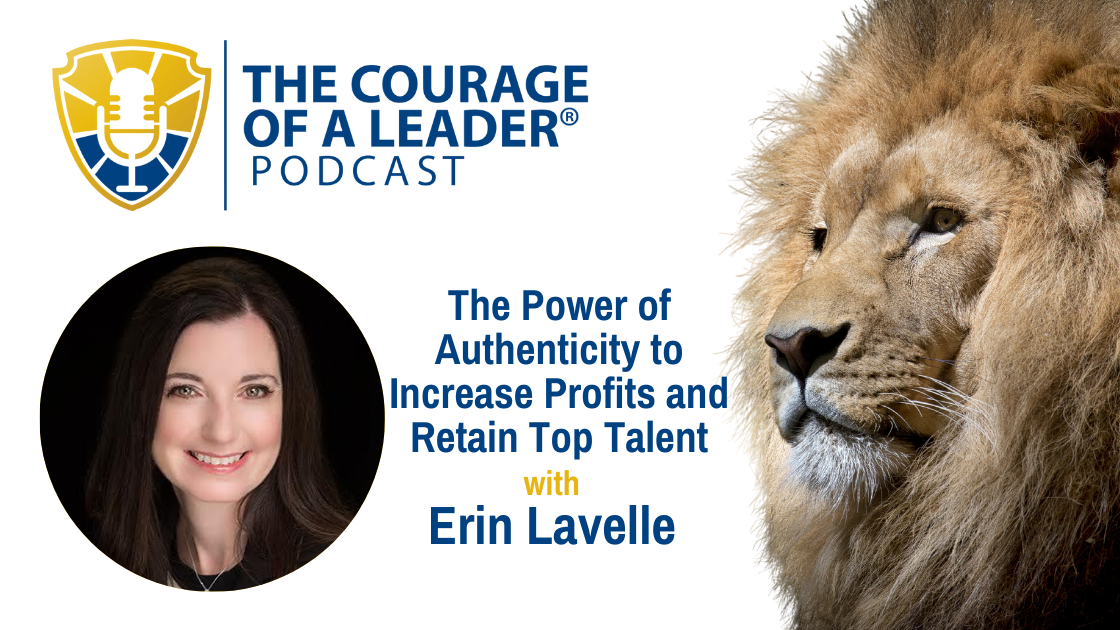
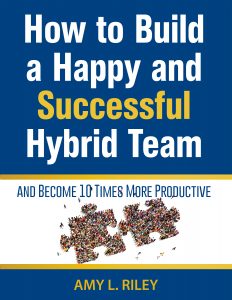
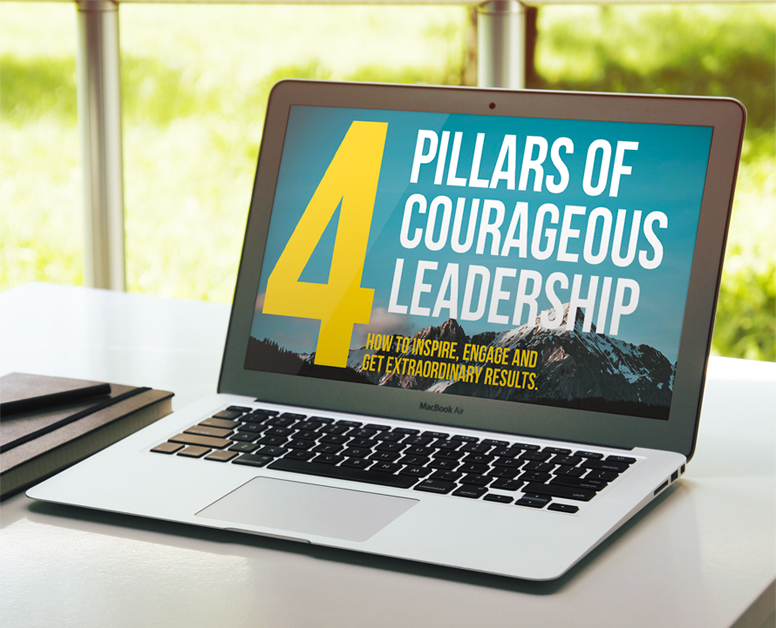 A Summary of The Courage of a Leader® 4 Pillars
A Summary of The Courage of a Leader® 4 Pillars